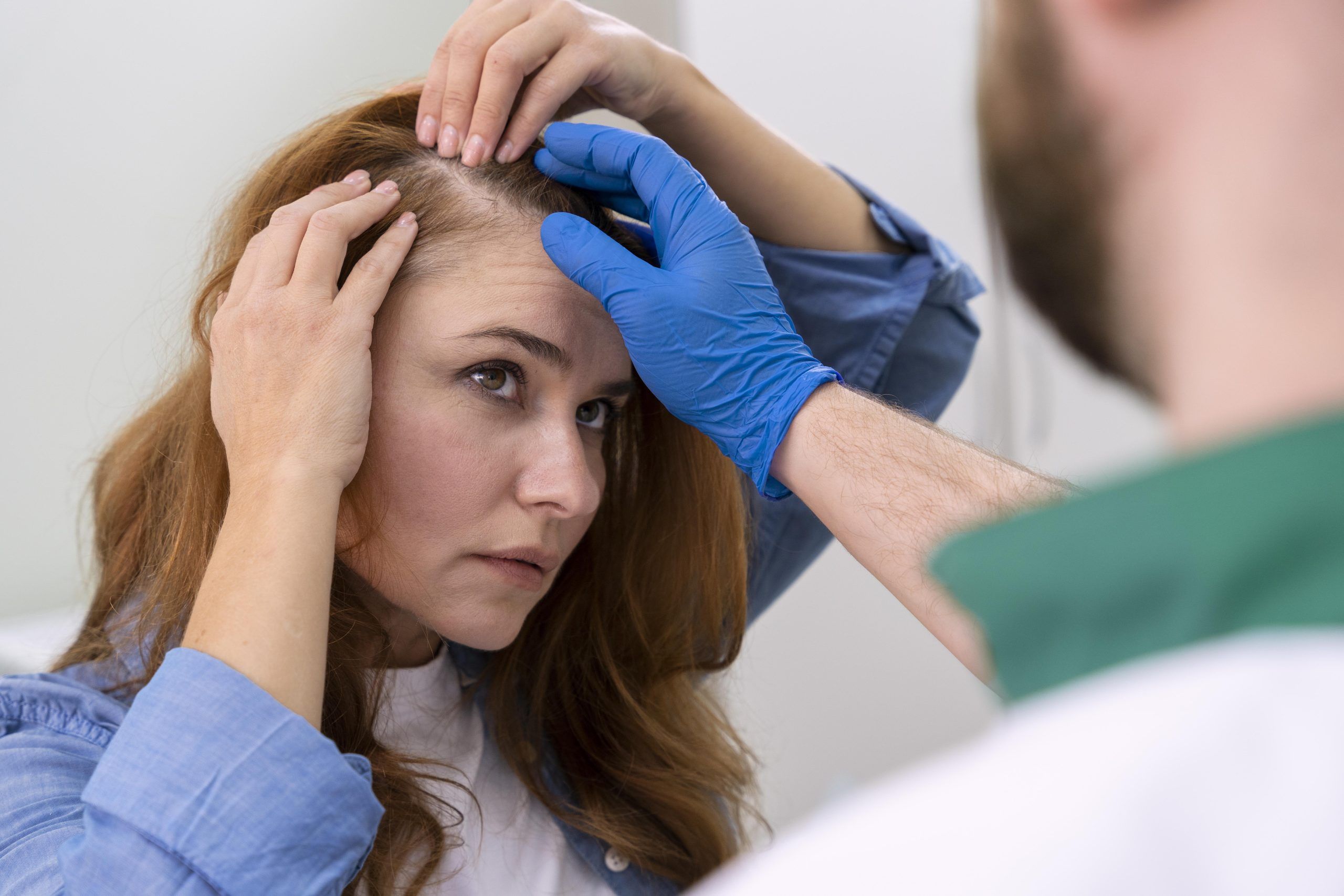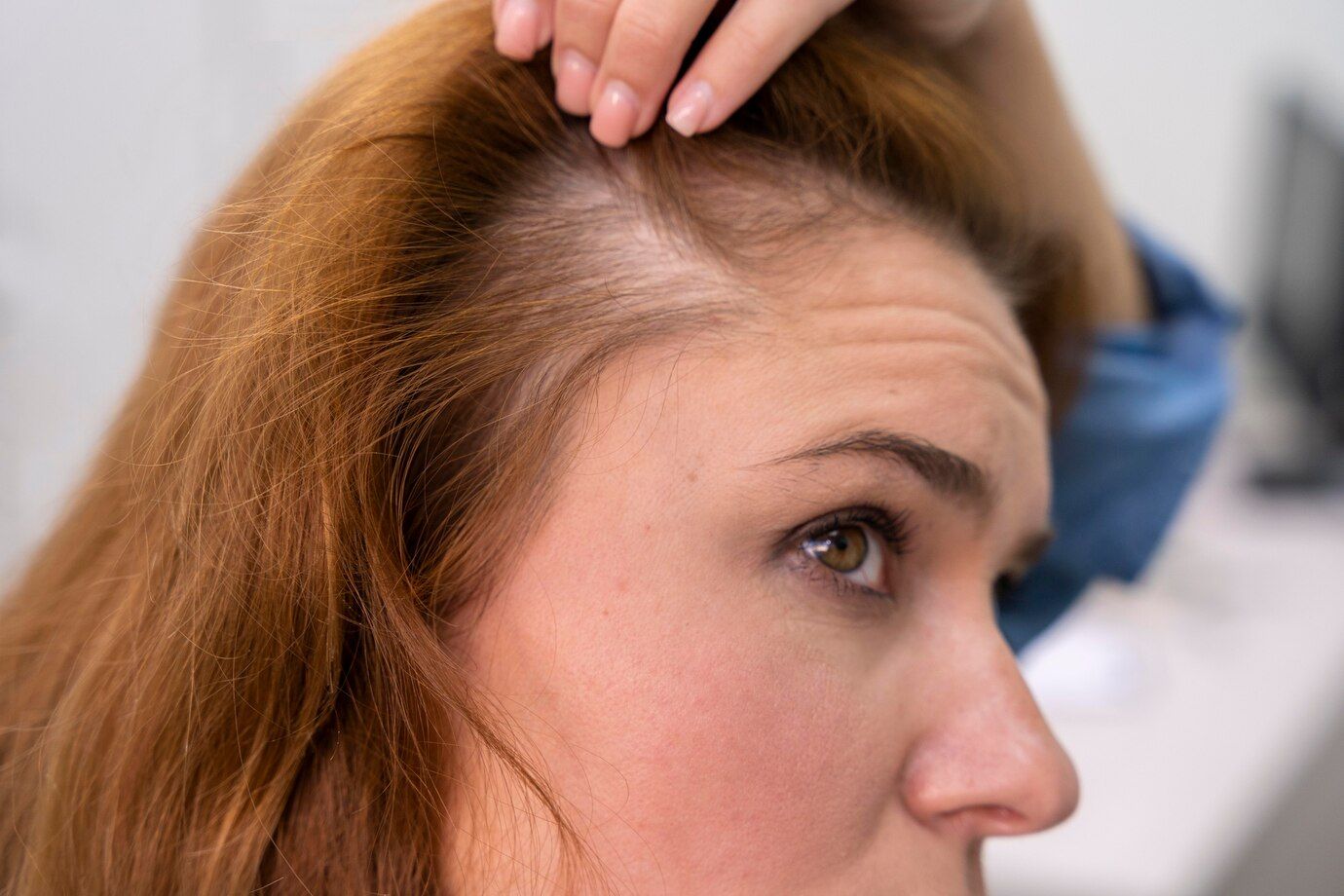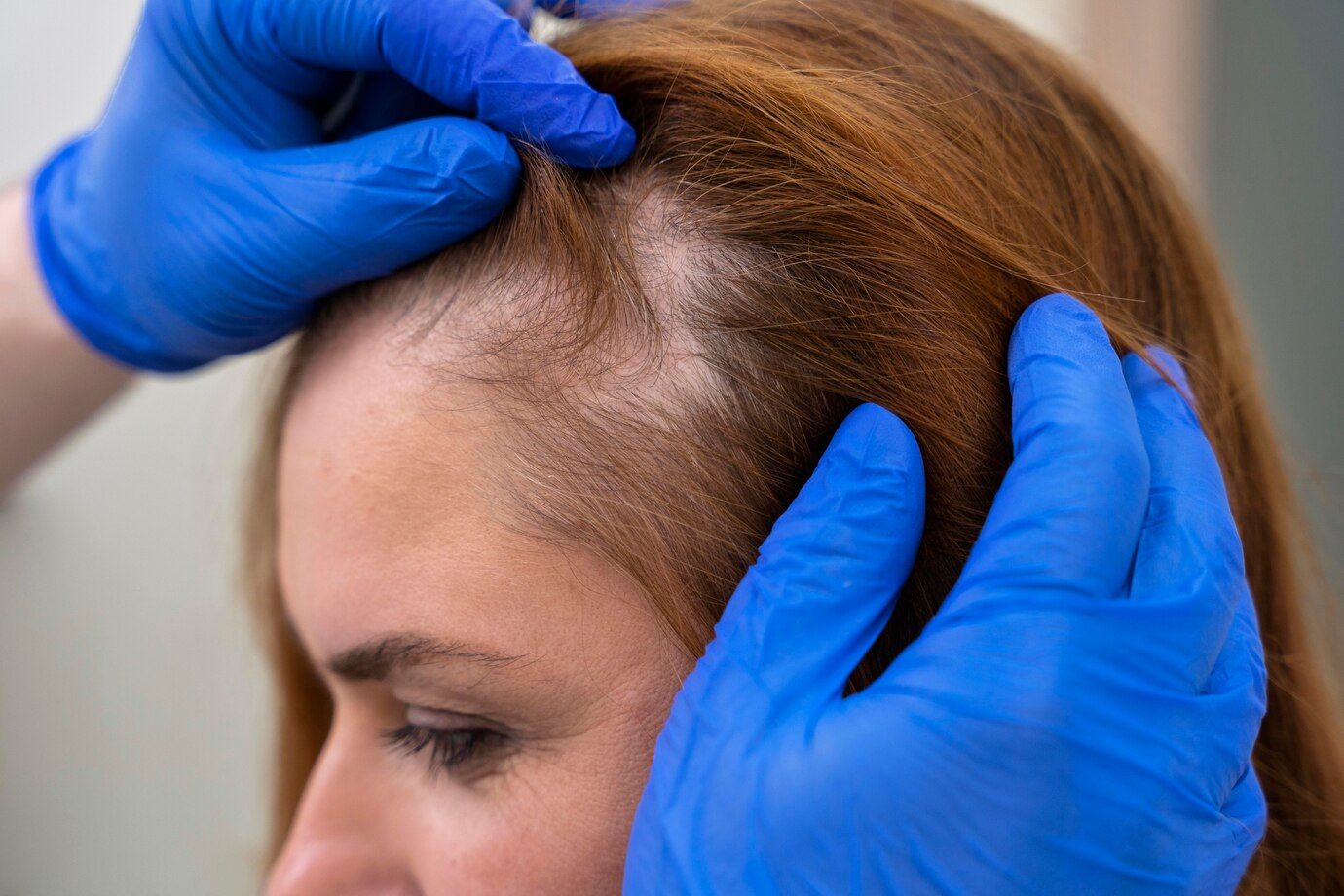Hair Transplant For Women
An Effective Solution That Restores Women’s Self-Confidence!
Hair transplantation is a highly effective treatment method that allows women with hair loss to regain their self-confidence. Especially for women, hair transplantation is of great importance as it has the potential to have a positive impact on their appearance. Hair loss or complete loss of hair is a worrying situation that no one wants to experience. Hair loss can negatively affect not only the appearance but also the psychology of the person. Especially in women, it can cause a greater concern than in men. In a study, it was stated that men who experience hair loss are unhappy with these problems, while in women, this condition causes deeper emotions, including fear, shame and humiliation. Serious psychological problems can also occur, such as feeling incomplete in social relationships, trying to hide the hair loss or having difficulty coping with hair loss. Although it is applied more frequently than men, it is becoming increasingly common for women to benefit from hair transplantation treatments.
However, before hair transplantation, it is important to understand the causes of hair loss and what women should do to protect their hair.


Causes of Hair Loss in Women
Female pattern hair loss is the most common cause of hair loss in women, also known as Androgenetic Alopecia. However, other important causes of hair loss in women can be the following:
1) Genetic predisposition
2) Autoimmune diseases
3) Hormonal changes
4) Medication use
5) Menopause
6) Pregnancy
7) Excessive stress
8) Heavy diets
9) Iron deficiency
Androgenetic Alopecia is characterised by changes in the hair follicle. The terminal hair follicles gradually shrink, become colourless fine hairs, and the hair growth phase shortens and eventually falls out. Female pattern hair loss is similar to male pattern hair loss, but there are also some differences. In men, hair loss usually affects the front, side and crown areas, whereas in women this type of complete hair loss is very rare. Hair loss in women usually occurs as a thinning of the hair or is localised in a specific area.
Hair loss in women can be more difficult to diagnose because the causes are not fully understood.

Ways to Prevent Hair Loss Types Seen in Women
Hair loss prevention for women may differ depending on the type and cause of hair loss.
However, we have got some suggestions for you below:
Hair Transplantation:
Hair transplantation, which offers a permanent solution to hair loss, is the process of taking hair follicles resistant to hair loss from the donor area and transplanting them to the areas needed. This procedure, which is performed with minimally invasive methods, is an effective solution for women against permanent hair loss when the donor area is suitable for transplantation.
Minoxidil
Approved by the FDA, minoxidil topical solution can show effects that slow and stop hair loss. 2% minoxidil form is recommended for women.
PRP (Platelet-Rich Plasma):
PRP therapy involves the separation of blood taken from the body into plasma and platelets by centrifugation. This mixture is then injected into the scalp and can stimulate hair growth.
Hair Mesotherapy:
Mesotherapy is a method in which pharmacological drugs are injected into the skin in small doses. It is preferred to slow down hair loss and revitalise hair.
Healthy Nutrition:
Consuming foods rich in protein, biotin, magnesium, zinc, selenium and vitamins can support hair health. Meat, fish, eggs, whole grains, spinach, bananas and green leafy vegetables contain these important nutrients and can help strengthen and protect hair.
Statistics about hair loss in women:
One in four women suffer from hair loss, and this rate can increase to two in four with menopause.
Approximately 40% of women with hair loss experience “female pattern hair loss”, which is associated with genetic factors.
%10 of premenopausal women and more than 50 per cent of women over the age of 65 experience hair thinning.
84% of women with hair loss experience low self-esteem, 34% struggle with depression and 94% find hair loss less acceptable than men.
Approximately 14.7% of hair transplant recipients worldwide are women.
Pharmalps’ Hair Transplant Service:
As Pharmalps, we introduce experienced clinics that offers a special approach to women’s hair loss problems. During the hair transplantation process, it is not necessary to shave all the hair. Here is the hair transplantation process for women going through these stages:
A small window is opened on the back of the head between the two ears so that it cannot be seen. In this way, it is not understood that the procedure is performed even after the operation.
After local anaesthesia is applied, follicular units are removed using a special micro motor.
Micro channels are opened in the areas of hair loss and hair follicles are transplanted one by one, taking into account the direction and angle of hair growth.
The transplantation process is performed using smooth and sharp Sapphire tips.
If the hair transplantation is to be performed between the existing hairs, implanter (choi) is used with DHI technique. In order to successfully complete the hair transplantation for women, a personalised planning is made. Therefore, a consultation with an experienced doctor is important if you want to regain your hair. Our partner clinic offers special solutions for women’s hair transplantation treatment needs. With a personalised planning, you can restore the health and appearance of your hair.

Hair transplant procedures for women have become increasingly popular in recent years, offering a solution for those experiencing hair loss or thinning. Unlike in men, female pattern baldness often presents differently, making diagnosis and treatment more complex. However, advancements in technology and techniques have made hair transplantation a viable option for many women seeking to restore their confidence and reclaim a fuller, thicker head of hair. At Pharmalps, we understand the unique concerns and needs of women when it comes to healthcare, including hair restoration.
Whether you have questions about the procedure, want to schedule a consultation, or are ready to explore your options, our team is here to assist you every step of the way.
Feel free to reach out to us with any inquiries or requests for an appointment.
*Pharmalps is not a clinic*
**Pharmalps offers medical tourism consultancy**

